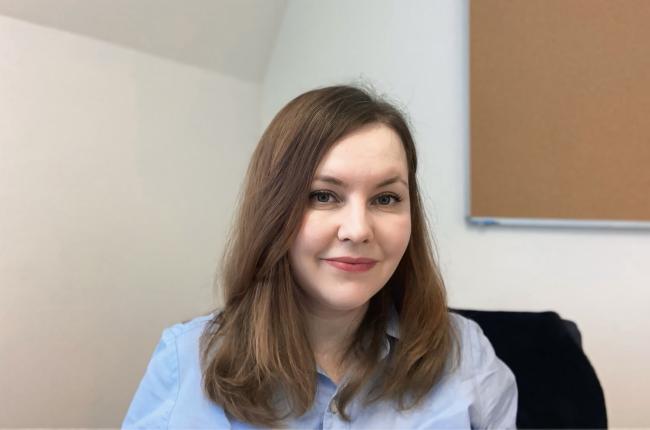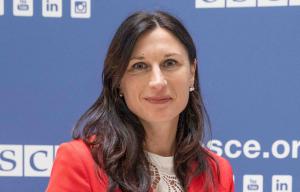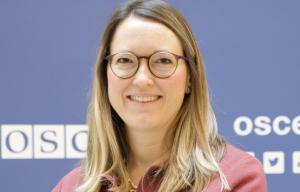Daria Khvostova
Senior Software Development Assistant - OSCE Secretariat

Can you share a bit about where you've worked before joining the OSCE and what your responsibilities were?
I started my career as a technical translator and interpreter in engineering, heavy industry, machinery, development, and IT domains. Later, I concentrated on delivering IT services to various clients.
I started working at the OSCE in 2014 as a Language Assistant joining the field mission. However, my prior IT certifications and hands-on experience enabled me to progress into an Information and Communication Technology Assistant role in a demanding and fast-evolving field environment. I initially provided first- and second-tier IT support to a large, geographically distributed field office team. Due to the nature of my work, I had to quickly and efficiently get hands-on practical skills in more and more technologies.
Later, I moved to the head office, where my responsibilities expanded to include designing solutions to meet operational challenges, managing IT projects, and providing advanced technical support.
What’s your academic background, and how does it connect with the career you’ve built?
My academic path started with a Master’s degree in Translation and Interpretation. Early on, I realized the importance of complementing my linguistic skills with a technical specialization, for that I enrolled in a private Computer Academy in my home city, where I earned certifications in System Administering and Computer Graphics and Web-Development.
Recognizing the need for deeper expertise, I then pursued my second Master’s degree in Information Technologies, Information Control Systems and Technologies.
Simultaneously, I enrolled in Cambridge Judge Business School to gain broader and deeper knowledge in IT strategy, governance, and management.
Throughout my career, I have continuously enhanced my skills, earning certifications such as PRINCE2 Foundation and Practitioner, ITIL 4 Foundation. I’m convinced that professional development is tied to continuous life-long lifelong learning—there is always something new to master, and I look forward to tackling future challenges with newly acquired skills.
Where are you based now, and what do you enjoy most about your current role at the OSCE?
After nine years in the field mission, I’m currently based at the OSCE Secretariat as part of the Software Development Team. My scope expanded from managing e-learning and external collaboration platforms to leading organization-wide software development projects, procurements, business analysis, documentation, testing, and other key tasks.
In my role, I apply a wide range of skills—communicating with internal business units, translating their needs into technical solutions, ensuring software tools align with organizational requirements, and supporting e-learning initiatives to facilitate knowledge sharing. Each day presents an opportunity to contribute meaningfully, solving complex challenges while driving innovation.
Seeing the impact of my work, I feel fortunate to do what I love, use and improve my skills, and contribute to a mission that makes a difference. This sense of accomplishment and fulfillment is what I value most about my job.
What advice would you give to those thinking about a career in international civil service?
This Organization offers incredible diversity of people, experiences, and subject matter areas, with professionals from 57 participating States and 11 Partners for Co-operation. It is an opportunity to contribute to meaningful work while gaining knowledge and experience from a unique blend of expertise that is rare to find elsewhere
If you aspire to make a difference, dream big and take the leap!

